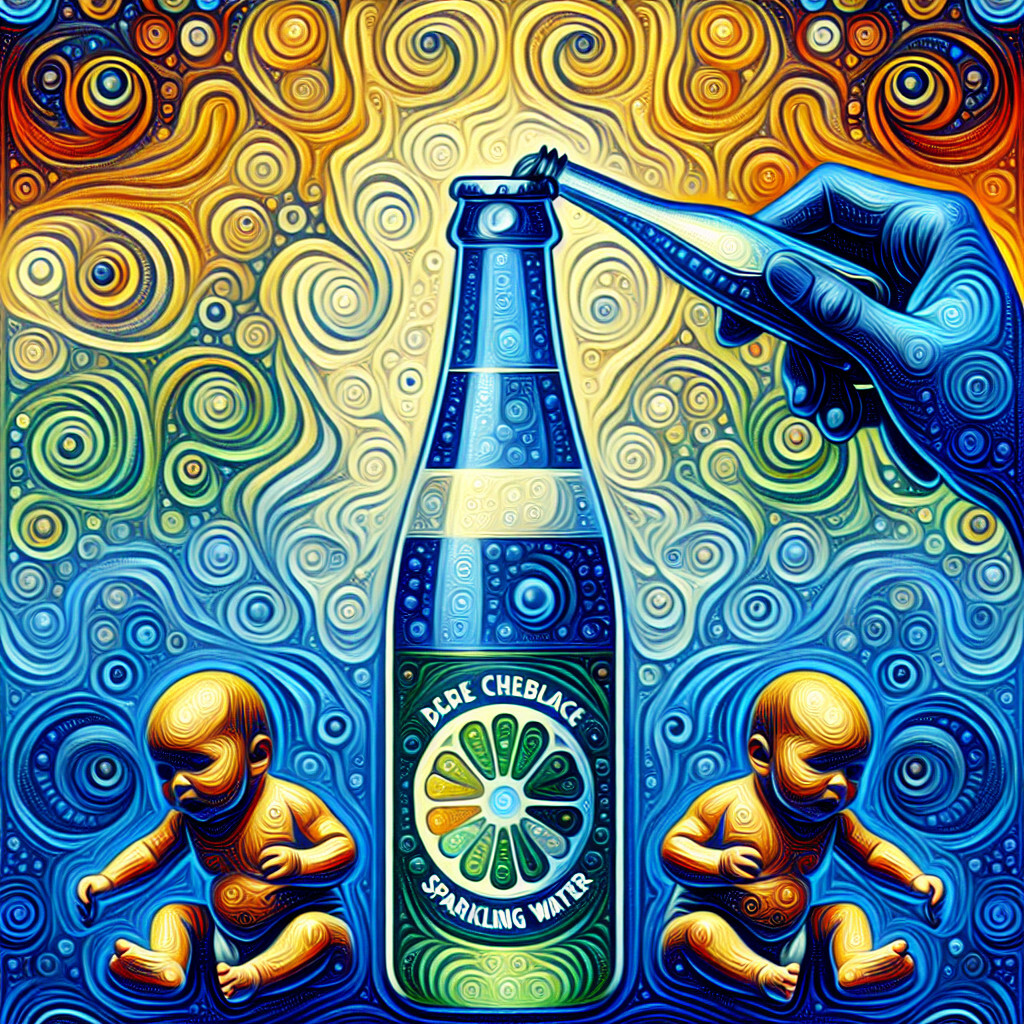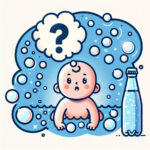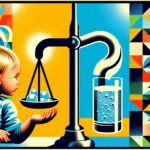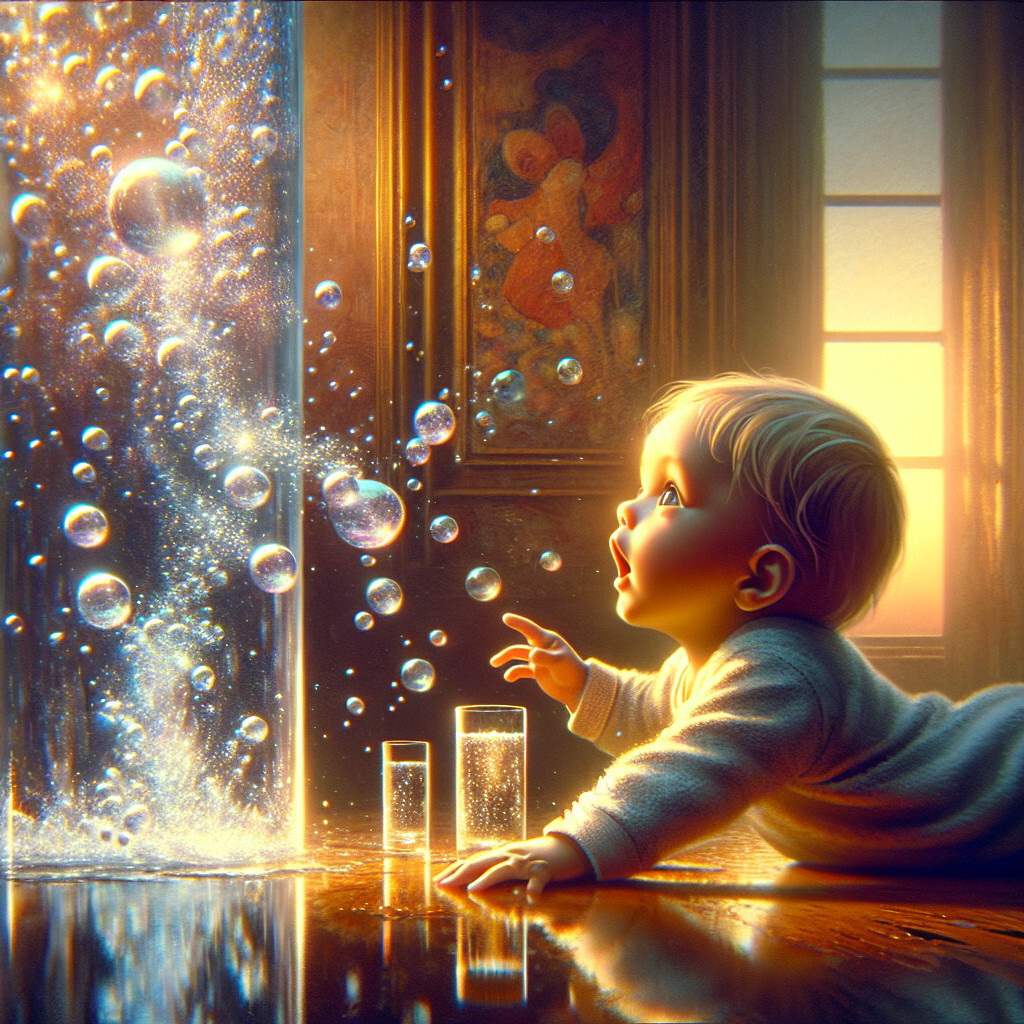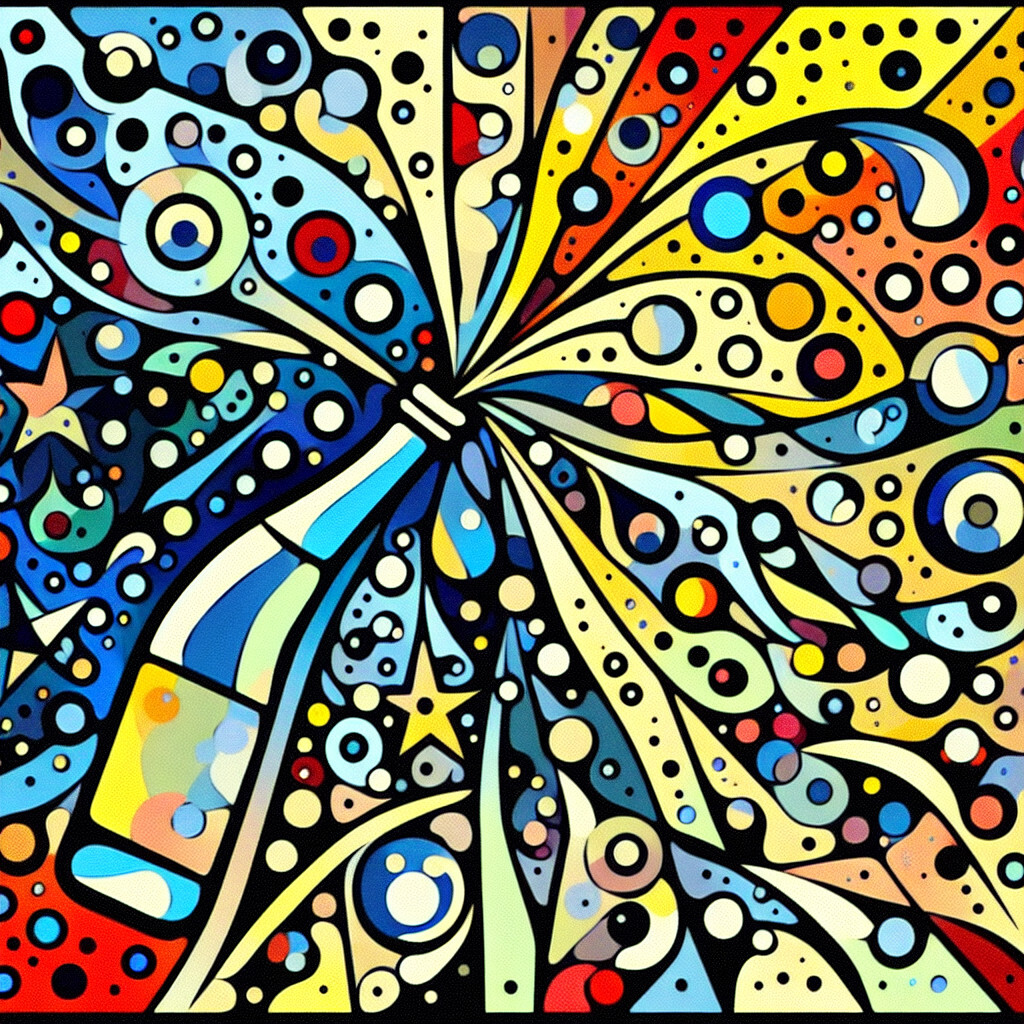-
Table of Contents
“Sparkling Water: A Bubbly Debate for Baby’s Health”
Introduction
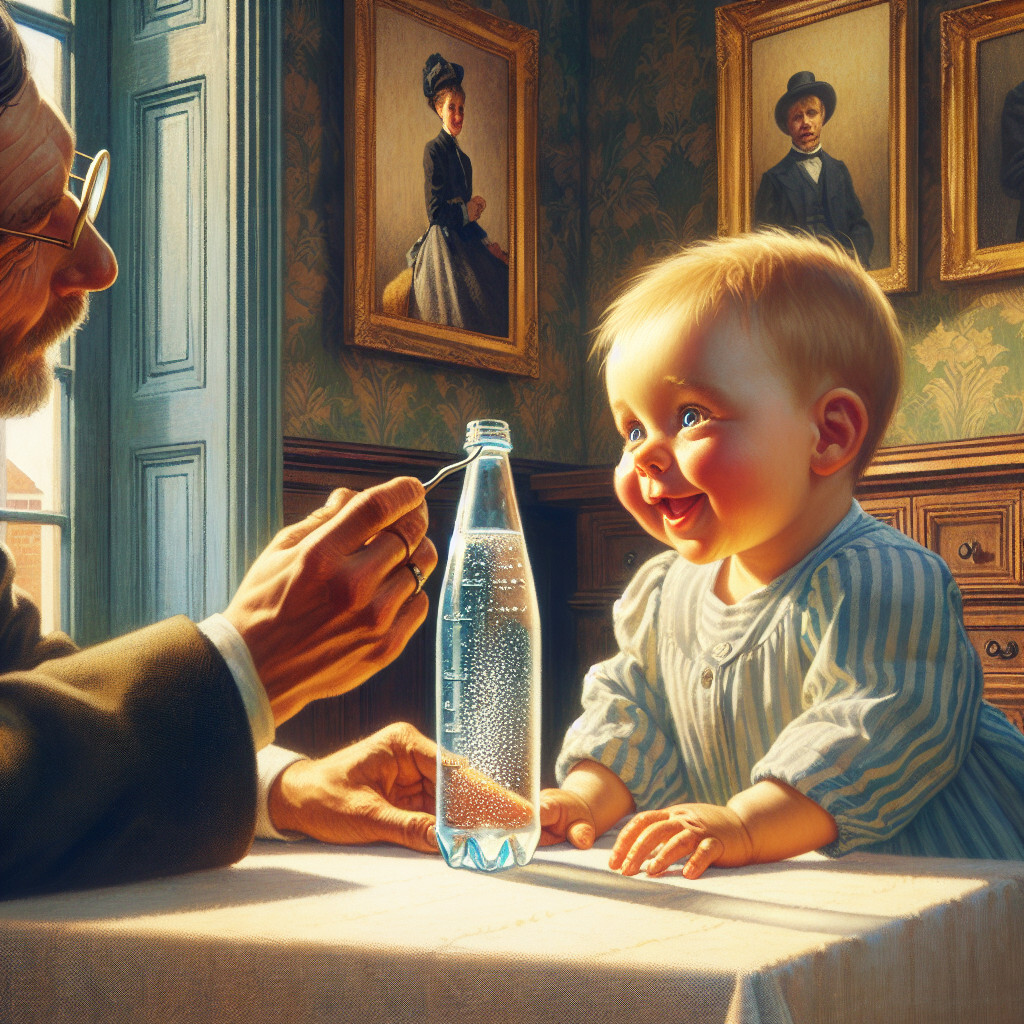
Sparkling water, also known as carbonated water, is a popular beverage among adults. However, when it comes to babies, parents often wonder if it’s safe for their little ones. While it’s not harmful or toxic, it’s generally not recommended for babies. The carbonation can cause gas and upset stomachs in infants, and it also lacks the necessary nutrients they need for growth and development. Furthermore, it can potentially harm emerging teeth. Therefore, while sparkling water is not inherently dangerous, it’s best to stick to breast milk, formula, or plain water for babies.
Understanding the Safety of Sparkling Water for Babies
Understanding the safety of sparkling water for babies is a topic of interest for many parents and caregivers. As the popularity of sparkling water continues to rise, it’s natural to wonder if this fizzy beverage is safe for the youngest members of our families. While sparkling water is generally safe for adults and older children, it’s not recommended for babies.
Sparkling water, also known as carbonated water, is simply water into which carbon dioxide gas has been dissolved under pressure. This process gives the water its characteristic bubbles and fizz. While this might seem harmless, there are several reasons why sparkling water may not be suitable for babies.
Firstly, the carbonation in sparkling water can cause gas and bloating in babies. Their digestive systems are still developing and are not yet equipped to handle the bubbles in carbonated beverages. This can lead to discomfort, fussiness, and even colic in some cases.
Secondly, sparkling water is often more acidic than regular water due to the carbonation process. This acidity can potentially harm a baby’s developing teeth. Although baby teeth are temporary, they play a crucial role in helping your child chew and speak properly. They also hold space in the jaws for the permanent teeth that are growing under the gums. Therefore, maintaining their health is of utmost importance.
Moreover, some brands of sparkling water contain added flavors, sugars, or other additives that are not suitable for babies. Even those labeled as “natural” can contain high levels of sodium or artificial sweeteners. Babies need a specific balance of nutrients for their growth and development, and these additives can disrupt that balance.
It’s also worth noting that while sparkling water is hydrating for adults, it should not replace regular water, breast milk, or formula in a baby’s diet. Babies under six months old should only drink breast milk or formula, unless otherwise directed by a healthcare provider. After six months, small amounts of water can be introduced, but breast milk or formula should still make up the majority of their liquid intake.
In conclusion, while sparkling water is a refreshing and healthy choice for adults and older children, it’s not recommended for babies. The carbonation can cause digestive issues, the acidity can harm their developing teeth, and the potential for added sugars or other additives makes it a less than ideal choice. Instead, stick to breast milk, formula, and small amounts of regular water for your little one.
As always, if you have any concerns about your baby’s diet or hydration, it’s best to consult with a healthcare provider. They can provide guidance based on your baby’s specific needs and circumstances. Remember, what’s suitable for adults isn’t always suitable for babies. Their bodies are still growing and developing, and they have unique nutritional needs. Therefore, it’s essential to make informed decisions about what we feed them, ensuring they get the best start in life.
The Impact of Sparkling Water on Infant Health
Sparkling water, also known as carbonated water, has gained significant popularity in recent years due to its refreshing taste and perceived health benefits. However, when it comes to infants, parents often wonder if sparkling water is safe for their little ones. This article aims to shed light on the impact of sparkling water on infant health.
Firstly, it is essential to understand what sparkling water is. It is simply water into which carbon dioxide gas has been dissolved under pressure, resulting in a fizzy drink. It does not contain any sugars, calories, or caffeine, making it a healthier alternative to sugary soft drinks. However, the safety of sparkling water for infants is a different matter altogether.
The primary concern with giving sparkling water to babies is the high acidity level. The process of carbonation leads to the formation of carbonic acid, which gives the water its characteristic fizz. This acid can potentially harm a baby’s still-developing teeth. Prolonged exposure to acidic drinks can lead to dental erosion, a condition where the enamel of the teeth is worn away. This can make the teeth more susceptible to cavities and decay. Therefore, it is advisable to avoid giving sparkling water to babies, especially those with emerging teeth.
Another potential issue with sparkling water is its impact on the baby’s immature digestive system. The bubbles in sparkling water can cause gas and bloating in adults, and the effect can be even more pronounced in babies. Their digestive systems are still developing and may not be able to handle the excess gas produced by the carbonation. This can lead to discomfort, fussiness, and even colic in some cases.
Moreover, while sparkling water is free of sugars and calories, it also lacks the essential nutrients that babies need for their growth and development. Babies under six months should ideally be exclusively breastfed or formula-fed, as these provide all the necessary nutrients. For older babies, while introducing water is recommended, it should be plain, uncarbonated water. This is because water is primarily given to babies to keep them hydrated, not to provide nutrients or flavor.
Lastly, there is a risk of choking with sparkling water. The bubbles can potentially cause choking in babies, especially those under one year of age. Therefore, it is generally safer to stick to regular, non-carbonated water for babies.
In conclusion, while sparkling water may be a healthy choice for adults, it is not recommended for babies. The high acidity can harm their developing teeth, the bubbles can cause digestive issues, and it lacks the essential nutrients that babies need. Moreover, there is a potential choking hazard. Therefore, for infants, the best choice is always breast milk or formula, supplemented with plain water as they grow older. As always, if you have any concerns about your baby’s diet or health, it is best to consult with a pediatrician or a healthcare professional.
Debunking Myths: Is Sparkling Water Safe for Babies?
There has been a growing trend in recent years towards the consumption of sparkling water, with many adults enjoying it as a healthier alternative to sugary sodas. However, when it comes to the safety of sparkling water for babies, there are several myths and misconceptions that need to be debunked.
Firstly, it is important to understand what sparkling water is. It is simply water that has been infused with carbon dioxide under pressure, which gives it its characteristic fizz. It does not contain any sugars, artificial sweeteners, or caffeine, which are commonly found in other carbonated beverages. Therefore, from a nutritional standpoint, sparkling water is not harmful to babies.
However, the safety of sparkling water for babies is not just about its nutritional content. The carbonation in sparkling water can cause discomfort and digestive issues in babies. Their digestive systems are still developing and are not equipped to handle the gas that is released when the carbon dioxide in sparkling water is consumed. This can lead to bloating, gas, and discomfort, which can be particularly distressing for a baby.
Moreover, the acidity of sparkling water is another factor to consider. While it is not as acidic as other carbonated beverages, it is still more acidic than regular water. This acidity can potentially harm a baby’s developing teeth and enamel. Although the risk is relatively low, especially if sparkling water is consumed in moderation, it is still a risk that parents should be aware of.
In addition, the sensation of drinking sparkling water can be overwhelming for babies. The bubbles and fizz can be a strange and potentially frightening experience for them. This can make them reluctant to drink it, which can lead to dehydration if they do not consume enough other fluids.
Furthermore, there is a risk that babies who are given sparkling water may develop a preference for it over regular water. This can be problematic as it may make it more difficult to get them to drink regular water, which is essential for their hydration and overall health.
In conclusion, while sparkling water is not inherently harmful to babies, there are several reasons why it is not the best choice for them. Their developing digestive systems, the potential harm to their teeth, the unfamiliar sensation, and the risk of developing a preference for sparkling water over regular water all make it a less than ideal choice.
Therefore, it is recommended that babies be given regular water, breast milk, or formula as their primary sources of hydration. These are all safe, healthy options that are well-suited to their needs. Sparkling water can be introduced gradually as they get older and their digestive systems become more mature, but it should not replace regular water, breast milk, or formula.
In essence, the myth that sparkling water is unsafe for babies is not entirely accurate. It is not unsafe in the sense that it contains harmful substances, but it is not the best choice due to the potential discomfort and risks associated with its consumption. As with many things in parenting, it is about making informed choices based on the best available evidence.
The Pros and Cons of Giving Sparkling Water to Babies
Sparkling water, also known as carbonated water, has gained popularity in recent years as a refreshing and healthier alternative to sugary sodas. However, when it comes to babies, parents often wonder if it’s safe to introduce this fizzy beverage into their little one’s diet. To answer this question, it’s essential to weigh the pros and cons of giving sparkling water to babies.
On the positive side, sparkling water is free from sugars, artificial sweeteners, and calories, making it a healthier choice compared to other carbonated drinks. It’s simply water that has been infused with carbon dioxide under pressure. This process gives the water its characteristic bubbles and fizz. If your baby enjoys the sensation of the bubbles, sparkling water could be a fun way to keep them hydrated.
However, it’s important to note that the American Academy of Pediatrics (AAP) recommends that babies under six months should only consume breast milk or formula. After six months, small amounts of water can be introduced, but the primary source of hydration and nutrition should still be breast milk or formula. Therefore, while sparkling water isn’t harmful per se, it shouldn’t replace these essential sources of nutrition.
Moving on to the potential downsides, the first concern is the acidity of sparkling water. Carbonation process can make the water slightly more acidic than regular water, which could potentially harm a baby’s developing teeth. Although the risk is relatively low, especially compared to sugary drinks, it’s still something to consider.
Another potential issue is that the bubbles in sparkling water can cause gas and bloating. Babies have immature digestive systems, making them more susceptible to these issues. Consuming sparkling water could lead to discomfort and fussiness if the baby ends up swallowing too much air.
Moreover, the sensation of the bubbles might be too intense for some babies. Just as some adults find the fizziness of sparkling water off-putting, babies might have the same reaction. It’s also worth noting that the introduction of new and unfamiliar tastes and textures should be done gradually in babies.
In conclusion, while sparkling water is not inherently harmful to babies, it’s not necessarily beneficial either. It’s best to stick to breast milk or formula for babies under six months, and introduce small amounts of regular water after that age. If you choose to give your baby sparkling water, it should be done sparingly and under the guidance of a pediatrician. Remember, every baby is unique, and what works for one might not work for another. Therefore, it’s always best to consult with a healthcare professional before introducing any new foods or drinks into your baby’s diet.
Q&A
1. Question: Is sparkling water safe for babies?
Answer: No, it’s not recommended to give babies sparkling water. The carbonation can cause discomfort and bloating.
2. Question: Can sparkling water harm a baby’s developing teeth?
Answer: Yes, the acidity in sparkling water can potentially harm a baby’s developing teeth.
3. Question: Can babies drink sparkling water if it’s diluted with juice?
Answer: No, even if diluted with juice, sparkling water is not recommended for babies due to its carbonation and potential acidity.
4. Question: What age can a child start drinking sparkling water?
Answer: It’s generally safe for children to start drinking sparkling water around the age of 2, but it’s always best to consult with a pediatrician first.
Conclusion
In conclusion, sparkling water is not recommended for babies as it may contain added sugars, artificial flavors, and sodium, which are not suitable for their developing bodies. Additionally, the carbonation can cause stomach discomfort and gas. Babies should primarily be given breast milk or formula, and only introduced to water after six months of age, preferably plain, fluoride-rich tap water.

